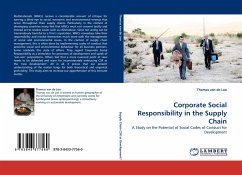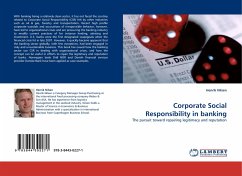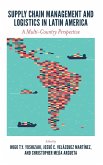Multinationals (MNCs) receive a considerable amount of critique for turning a blind eye to social, economic and environmental wrongs that occur throughout their supply chains. Particularly in the context of developing countries many feel that MNCs must not consent tacitly and instead act to resolve issues such as child labour. Since not acting can be tremendously harmful to a firm's reputation, MNCs nowadays take their responsibility and involve themselves much more with the management of social and environmental issues. In the context of supply chain management, this is often done by implementing codes of conduct that prescribe social and environmental behaviour for all business partners. Some celebrate this state of affairs. They regard Corporate Social Responsibility as a stimulator for processes of development and speak of 'win-win' propositions. Others feel that a more nuanced point of view needs to be defended and warn for inconsiderately embracing CSR as the 'new development'. All in all, it proves that our present understanding of the matter longs for both theoretical and empirical profundity. This study aims to increase our apprehension of this intricate matter.
Bitte wählen Sie Ihr Anliegen aus.
Rechnungen
Retourenschein anfordern
Bestellstatus
Storno








